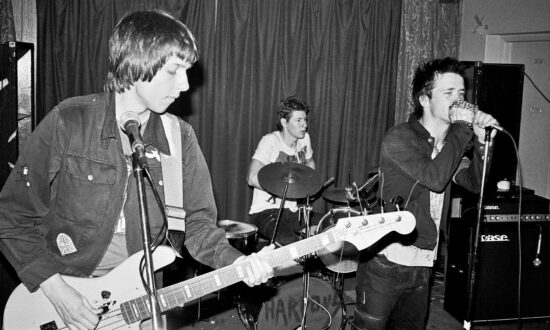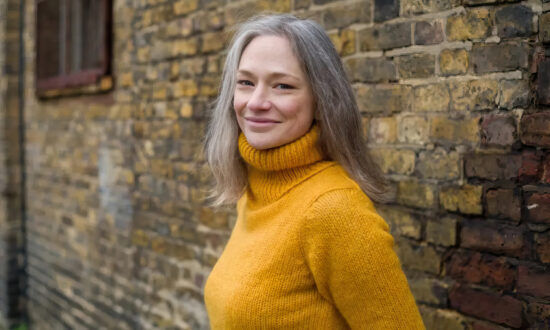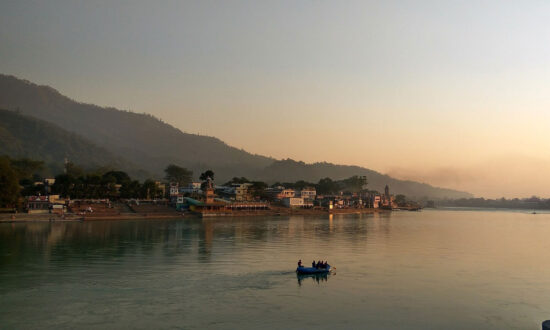The Stories from the South Book Club is a series for book lovers to explore what it means to inhabit the unique world of the ‘South’.
We will meet live at Dymocks Bookstore Rundle Mall on Tuesday, March 26, 6-7.30pm, for a discussion of Kathy Jetñil-Kijiner’s poetry collection Iep Jāltok with Jill Jones, Mandy Treagus, and Theodora Galanis.
Register here for this free public event. Use this guide to enrich your reading.
ABOUT IEP JĀLTOK

Kathy Jetñil-Kijiner.
The Marshall Islands, a string of 29 atolls and five islands in the Pacific Ocean, sit on average two metres above sea level. With increasingly frequent flooding and storm surges, severe coastal erosion, and steadily rising sea levels, the Marshall Islands are at risk of becoming uninhabitable.
In Iep Jāltok, Marshallese poet Kathy Jetñil-Kijiner writes back to those who are apathetic about an increase in global temperature. In her poem “Two Degrees”, she confronts a colleague who thinks 0.5 degrees “seems small” and “shouldn’t matter”. For the Marshall Islands, this is the difference between the nation surviving or sinking “under water”.
In “Tell Them”, Jetñil-Kijiner urges her friends to tell others “about the water—how we have seen it rising / flooding across our cemeteries / gushing over the sea walls / and crashing against our homes / Tell them what it’s like / to see the entire ocean __level__ with the land”. The poem bears witness to planetary sea change from the embodied position of the poet on the shore – a contrast to the impersonal register of scientific reports and statistics that dominate political discussions about climate change.
“Tell Them” captures the spirit of resistance that forms the basis of the broader politics of Iep Jāltok. The poet emphasises, “But most importantly you tell them / we don’t want to leave / we’ve never wanted to leave”, echoing the 99 per cent of Marshall Islanders who reject the idea of migration away from their home islands as a form of adaptation to the climate crisis.
Iep Jāltok connects present-day climate change to the ongoing suffering caused by nuclear testing and militarisation in the region. In the section titled “History Project”, Jetñil-Kijiner critiques the impacts of militarism on community health and grieves the loss of family members affected by “radioactive fallout”. Scholar Teresia Teaiwa writes, “the Pacific still churns with its colonial and nuclear legacies”; Iep Jāltok renders these visible (find Teaiwa’s essay on Bikini Atoll in the Further Resources section).
In the epilogue, Jetñil-Kijiner tells us that “Iep Jāltok (yiyip jalteq)” means “a basket whose opening is facing the speaker”. The phrase is “said of female children” and “represents a basket whose contents are made available to her relatives”. In this way, the basket is focalised as the figure of Marshallese matrilineal oceanic culture.
Two poems both titled “Basket” begin and end the collection, holding it together. Their form bends across the page to appear like the titular “vessel”, while also being evocative of the curve of an atoll or the swell of a wave. In the spirit of the “woman” who “keeps giving .. memory” and “lineage”, Iep Jaltok generously shares with readers the stories of the Marshall Islands, drawing nourishment and power from the ocean’s “current / flowing”.
ABOUT THE POET
Kathy Jetñil-Kijiner is a Marshallese poet, performance artist, activist, and educator. She received international acclaim at the opening of the United Nations Climate Summit in New York in 2014, where she performed her poem “Dear Matafele Peinam”, addressed to her daughter. Her first collection of poetry, Iep Jāltok: Poems from a Marshallese Daughter, was published in 2017. She is the daughter of Marshall Islands’ first female president, Hilda Heine, whom she acknowledges in her book. Jetñil-Kijiner co-founded the youth environmentalist non-profit organisation Jo-Jikum, which empowers Marshallese youth to respond to climate change. In 2015, Jetñil-Kijiner was chosen as one of Vogue’s 13 Climate Warriors and, in 2017, she was awarded Impact Hero of the Year by Earth Company.
QUOTES FROM THE POET
Every time I read that poem [“Dear Matafele Peinam”], it’s almost like a prayer to me. Every time I do that poem, it’s like I’m willing it to be real. Like we’re not going to leave. Nothing’s going to happen, and nothing’s going to happen to our island because we’re going to keep fighting. Every time I perform that piece, I’m just reliving that moment again, and I’m willing it to be true. I’m speaking it into being every time I do that poem. – Jetñil-Kijiner, “Making Waves Through Eco-Poetry”
Nuclear testing had nothing to do with our safety as Marshallese people […] It was the United States deciding to test in our country because they felt that it was far away from who? … We have already lost islands, we’ve lost islands through the nuclear legacy, and so we know the pain of losing islands. – Jetñil-Kijiner, NHK News

Get InReview in your inbox – free each Saturday. Local arts and culture – covered.
Thanks for signing up to the InReview newsletter.
We enter this conversation as survivors […] My work as a poet, writer, and performer, has been using art and stories from our islands to shed light on this increasing threat [of climate change]. In a world that dismisses the power of human emotion and connection, art and writing are much-needed tools that provide surprising relief to those who open themselves up to experiencing it. And for me personally, as a Marshall Islander faced with the possibility of losing my ancestral home, art provides a vehicle, a moment of breath to meditate on the changes that our island is going through. – Jetñil-Kijiner, “Island Cities Under Water: The Case for Marshall Islands”
QUESTIONS AND DISCUSSION POINTS
- Oceanographer Sylvia Earle warns in her 1995 book, Sea Change, that the ocean is undergoing a radical transformation due to pollution, overfishing, and rising temperatures. Consider, how do you see sea change? How does it impact you?
- It is challenging to represent large-scale climate changes in fiction and poetry. How does Jetñil-Kijiner approach this? What poetic devices does she employ to communicate the multi-scalar effects of climate change?
- What poems indicate the matrilineal nature of Marshallese society? Why is this significant?
FURTHER RESOURCES
- Video poem, “Rise: from one island to another”, by Jetñil-Kijiner and Inuk writer and climate activist Aka Niviana.
- Teresia Teaiwa’s 1994 essay on Bikini Atoll, “Bikinis and other s/pacific n.oceans”, connects the island’s military and tourism history with the invention of the bikini bathing suit.
- Epeli Hau’ofa’s seminal 1993 essay “Our Sea of Islands”. He writes: “The idea of smallness is relative … If we look at the myths, legends, and oral traditions, and the cosmologies of the peoples of Oceania, it becomes evident that they did not conceive of their world in such microscopic proportion.”
- Read Jetñil-Kijiner’s “How do we mourn an island?” in The Guardian.
MORE STORIES FROM THE SOUTH
If you enjoyed Iep Jāltok, why not try poetry from Chamorro-American poet Craig Santos Perez. His ongoing series, from unincorporated territory, includes National Book Award-winner [åmot].
Support local arts journalism
Your support will help us continue the important work of InReview in publishing free professional journalism that celebrates, interrogates and amplifies arts and culture in South Australia.
Donate Here




